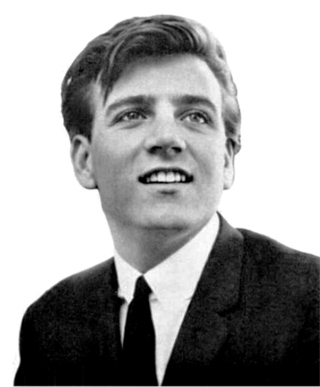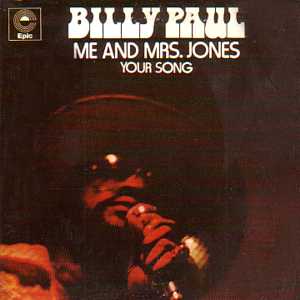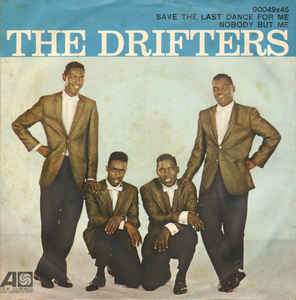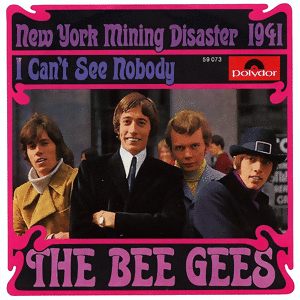Related Research Articles

William Howard Ashton, known professionally as Billy J. Kramer, is an English pop singer. With The Dakotas, Kramer was managed by Brian Epstein during the 1960s and scored hits with several Lennon–McCartney compositions never recorded by the Beatles, among them the UK number one "Bad to Me" (1963). Kramer and the Dakotas had a further UK chart-topper in 1964 with "Little Children" and achieved U.S. success as part of the British Invasion. Since the end of the beat boom, Kramer has continued to record and perform. His autobiography, Do You Want to Know a Secret, was published in 2016.

Benjamin Earl King was an American soul and R&B singer and record producer. He rose to prominence as one of the principal lead singers of the R&B vocal group The Drifters, notably singing the lead vocals on three of their biggest hit singles "There Goes My Baby", "This Magic Moment", and "Save the Last Dance for Me".

"Me and Bobby McGee" is a song written by American singer-songwriter Kris Kristofferson and originally performed by Roger Miller. Fred Foster shares the writing credit, as Kristofferson wrote the song based on a suggestion from Foster. A posthumously released version by Janis Joplin topped the U.S. singles chart in 1971, making the song the second posthumously released No. 1 single in U.S. chart history after "(Sittin' On) The Dock of the Bay" by Otis Redding. Gordon Lightfoot released a version that reached number 1 on the Canadian country charts in 1970. Jerry Lee Lewis released a version that was number 1 on the country charts in December 1971/January 1972 as the "B" side of "Would You Take Another Chance On Me." Billboard ranked Joplin's version as the No. 11 song for 1971.

Carla Venita Thomas is an American singer, who is often referred to as the Queen of Memphis Soul. Thomas is best known for her 1960s recordings for Atlantic and Stax including the hits "Gee Whiz " (1960), "B-A-B-Y" (1966) and "Tramp" (1967), a duet with Otis Redding. She is the daughter of Rufus Thomas.

"Stayin' Alive" is a song written and performed by the Bee Gees from the Saturday Night Fever motion picture soundtrack. The song was released in 1977 as the second single from the Saturday Night Fever soundtrack. The band co-produced the song with Albhy Galuten and Karl Richardson. It is one of the Bee Gees' signature songs. In 2004, "Stayin' Alive" was placed at No. 189 on the list of Rolling Stone's 500 Greatest Songs of All Time. The 2021 updated Rolling Stone list of 500 Greatest Songs placed "Stayin' Alive" at No. 99. In 2004, it ranked No. 9 on AFI's 100 Years...100 Songs survey of top tunes in American cinema. In a UK television poll on ITV in December 2011 it was voted fifth in "The Nation's Favourite Bee Gees Song".
"Do You Want to Know a Secret" is a song by English rock band the Beatles from their 1963 album Please Please Me, sung by George Harrison. In the United States, it was the first top ten song to feature Harrison as a lead singer, reaching No. 2 on the Billboard chart in 1964 as a single released by Vee-Jay, VJ 587. In the UK, Billy J. Kramer released a cover of the song as his debut single, reaching No. 1 on the NME singles chart and No. 2 on the Record Retailer chart.

"Me and Mrs. Jones" is a 1972 soul song written by Kenny Gamble, Leon Huff, and Cary Gilbert, and originally recorded by Billy Paul. It describes an extramarital affair between a man and his lover, Mrs. Jones. In the song, the two meet in secret "every day at the same cafe", at 6:30, where they hold hands and talk. The two are caught in a quandary: "We got a thing going on/we both know that it's wrong/but it's much too strong/to let it go now."

"Vaya con Dios (May God Be With You)" ([ˈba.ʝa kon djos], literally "Go with God") is a popular song written by Larry Russell, Inez James, and Buddy Pepper, and first recorded by Anita O'Day in December 1952. Les Paul and Mary Ford had a No. 1 recording of the song in 1953. Members of the Western Writers of America chose it as one of the Top 100 Western songs of all time.

"Do You Want to Dance" is a song written by American singer Bobby Freeman and recorded by him in 1958. It reached number No. 5 on the United States Billboard Top 100 Sides pop chart and No. 2 on the Billboard R&B chart. Cliff Richard and the Shadows' version of the song reached No. 2 in the United Kingdom in 1962, despite being a B-side. The Beach Boys notably covered the song in 1965 for their album The Beach Boys Today!. Retitled "Do You Wanna Dance?", their version reached No. 12 in the United States. A 1972 cover by Bette Midler with the original title restored reached No. 17.

Their Greatest Hits: The Record is the career retrospective greatest hits album by the Bee Gees, released on UTV Records and Polydor in November 2001 as HDCD. The album includes 40 tracks spanning over 35 years of music. Four of the songs were new recordings of classic Gibb compositions originally recorded by other artists, including "Emotion", "Heartbreaker", "Islands in the Stream", and "Immortality". It also features the Barry Gibb duet with Barbra Streisand, "Guilty", which originally appeared on Streisand's 1980 album of the same name. It is currently out of print and has been supplanted by another compilation, The Ultimate Bee Gees.

"Save the Last Dance for Me" is a song written by Doc Pomus and Mort Shuman, first recorded in 1960 by American musical group the Drifters with Ben E. King on lead vocals. It has since been covered by several artists, including Dalida, the DeFranco Family, Emmylou Harris, Dolly Parton, and Michael Bublé.
"If I Can't Have You" is a disco song written by the Bee Gees in 1977. The song initially appeared on the Saturday Night Fever soundtrack in a version by Yvonne Elliman, released in November 1977. The Bee Gees' own version appeared a month later as the B-side of "Stayin' Alive".

"Bad to Me" is a song credited to Lennon–McCartney. In late interviews, John Lennon said that he wrote it for Billy J. Kramer with The Dakotas while on holiday in Spain. However, in a 1964 interview he said that he and Paul McCartney wrote it in the back of a van, declaring McCartney a contributor. Bootlegs exist of Lennon's original demo of the song, which was recorded on 31 May 1963. An acoustic demo from the same era was released on iTunes in December 2013 on the album The Beatles Bootleg Recordings 1963. It became one of the first occasions a Lennon–McCartney composition made the US Top 40 recorded by an artist other than the Beatles.

"New York Mining Disaster 1941" is the debut American single by the British-Australian pop group the Bee Gees, released on 14 April 1967. It was written by Barry and Robin Gibb. Aside from a moderately successful reissue of their Australian single "Spicks and Specks," it was the first single release of the group's international career and their first song to hit the charts in both the UK and the US. It was produced by Ossie Byrne with their manager Robert Stigwood as executive producer. The song was the first track of side two on the group's international debut album, Bee Gees' 1st. This was the first single with Australian drummer Colin Petersen as an official member of the band.
"What Do You Want to Make Those Eyes at Me For?" is a song written by Joseph McCarthy, Howard Johnson and James V. Monaco in 1916 for the Broadway production Follow Me, in which it was performed by Henry Lewis.
"From a Window" is a song written by Paul McCartney, attributed to John Lennon and Paul McCartney, which was recorded by Billy J. Kramer with The Dakotas. It was the last of six Lennon–McCartney compositions recorded by Kramer.
"Looking Back" is a song written by Brook Benton, Belford Hendricks, and Clyde Otis and performed by Nat King Cole. It reached #2 on the U.S. R&B chart and #5 on the U.S. pop chart in 1958.
"Send for Me" is a song written by Ollie Jones and performed by Nat King Cole featuring the McCoy's Boys. It reached No. 1 on the U.S. R&B chart and No. 6 on the U.S. pop chart in 1957. The song was arranged by Billy May.
"Gee Whiz (Look at His Eyes)" is a song written and performed by Carla Thomas. It reached #5 on the U.S. R&B chart and #10 on the U.S. pop chart in 1961. It was featured on her 1961 album Gee Whiz.
"I Count the Tears" is a song written by Doc Pomus and Mort Shuman and performed by The Drifters, with Ben E. King singing lead. In 1960, the track reached No. 6 on the U.S. R&B chart, No. 17 on the U.S. pop chart, and No. 28 on the UK Singles Chart.
References
- ↑ The Drifters, "Dance with Me" Single Release Retrieved May 14, 2023
- ↑ The Drifters, "Dance with Me" Chart Positions Retrieved May 14, 2023
- ↑ The Drifters, The Drifters' Greatest Hits Retrieved May 14, 2023
- ↑ The Drifters, "Dance with Me" Chart Positions Retrieved May 14, 2023
- ↑ Carla Thomas, Gee Whiz Retrieved May 14, 2023
- ↑ Billy J. Kramer and The Dakotas, From a Window Retrieved May 14, 2023
- ↑ Emile Ford, "How Can I Live Without You" Single Release Retrieved May 14, 2023